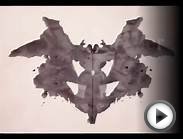
When you hear about forensic psychology, what comes to mind? Do you envision mysterious sleuths who solve crimes? Do you think of a criminal profiler who gets inside the mind of a killer in order to predict his next move? While there are probably a few forensic psychologists out there who fit these stereotypes, these highly-glamorized ideas are not the norm. So what exactly is forensic psychology and what do forensic psychologists do?
According to the American Board of Forensic Psychology,
"Forensic psychology is the application of the science and profession of psychology to questions and issues relating to law and the legal system. The word "forensic" comes from the Latin word "forensis, " meaning "of the forum, " where the law courts of ancient Rome were held. Today forensic refers to the application of scientific principles and practices to the adversary process where specially knowledgeable scientists play a role."Forensic psychology is a specialized branch that deals with issues that connect psychology and the law.
Interest in forensic psychology has grown significantly in recent years. Increasing numbers of graduate programs offer dual degrees in psychology and law, with others providing specialization in forensic psychology.
While forensic psychology is considered a rather new specialty area within psychology, the field dates back to the earliest days in psychology's history.
The field has experienced dramatic growth in recent years as more and more students become interested in this applied branch of psychology. Popular movies, television programs and books have help popularize the field, often depicting brilliant heroes who solve vicious crimes or track down killers using psychology.
While depictions of forensic psychology in popular media are certainly dramatic and attention-grabbing, these portrayals are not necessarily accurate. Forensic psychologists definitely play an important role in the criminal justice system, however, and this can be an exciting career for students interested in applying psychological principles to the legal system.
Learn more about forensic psychology, including the subjects it focuses on, its history and career options.
What Is Forensic Psychology?
If you enjoy learning about the science of human behavior and the law, then forensic psychology will probably interest you quite a bit. The field has witnessed dramatic growth in recent years, as more and more students become interested in this applied branch of psychology. However, forensic psychology is about much more than the glamorized views portrayed in television shows, movies and books.
Typically, forensic psychology is defined as the intersection of psychology and the law, but forensic psychologists can perform many roles so this definition can vary. In many cases, people working within forensic psychology are not necessarily "forensic psychologists." These individuals might be clinical psychologists, school psychologists, neurologists, or counselors who lend their psychological expertise to provide testimony, analysis or recommendations in legal or criminal cases.
For example, a clinical psychologist might provide mental health services such as assessment, diagnosis and treatment to individuals who have come into contact with the criminal justice system. Clinicians might be asked to determine if a suspected criminal suffers from a mental illness, or may be asked to provide treatment to individuals suffering from substance abuse and addiction issues.
Source: psychology.about.com
You might also like:




















